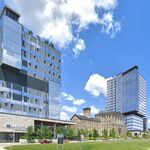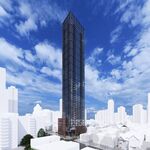Migos
Active Member

Only a couple cities keeping the price appreciation going...

Builders and real estate experts are banding together to warn consumers - and politicians - they are worried about the skyrocketing costs of housing. After almost a decade of finding “creative ways” to build more affordable housing — more condos rather than costly low-rise houses, and suites that now average just 767 square feet compared to 908 square feet in 2006 — developers fear they are hitting a wall. “While we will continue to innovate where we can, innovation alone will not address the challenge of affordability,” said Steve Deveaux, chair of the Building Industry and Land Development Association at a joint media briefing with the Toronto Real Estate Board Wednesday. “The building/development and real estate industries are worried about our ability to design and build and sell homes that people - especially first-time buyers - can afford.”
Skyrocketing cost of housing worries builders, realtors
http://www.thestar.com/business/201...ost-of-housing-worries-builders-realtors.html
Wait a minute, these developers want us to think that they are building increasingly smaller units to.... save us money?!.... give me a break.
http://www.thestar.com/life/homes/2014/08/29/new_neighbours_pay_growing_share_of_fees_charges.htmlA study conducted by the Toronto-based real estate consulting company Altus Group — and released by BILD in June, 2013 — showed that on average, government fees and charges amount to more than one-fifth of the cost of new home. The biggest part of that is development charges, which have increased between 143 and 357 per cent since 2004 across the GTA.
It's true. They are creating smaller and cheaper home so people can actually afford them. Governments have saddled developers with such high fees that it is impossible to create new, affordable housing in many municipalities.
Perhaps, but I'm not sure if any/much savings would trickle down to the individual buyer, even if these developer fees were lessened. Also, it already seems to me that developers are passing on quite a number of said fees to the general public buyers.
I am always curious how people are able to borrow so much money. What do you think the loan to value on that million dollar home?




